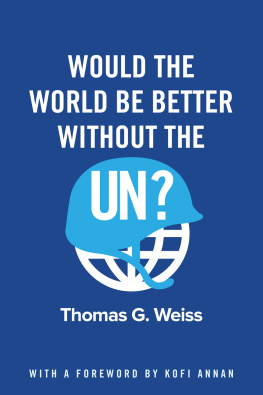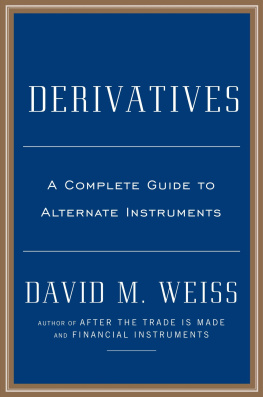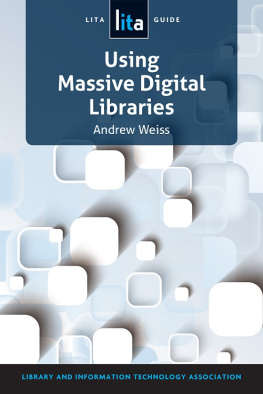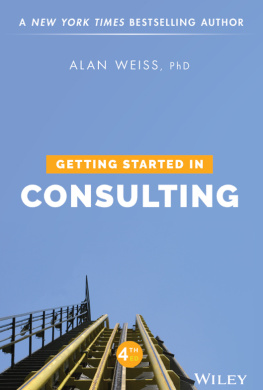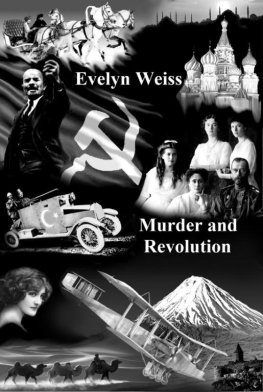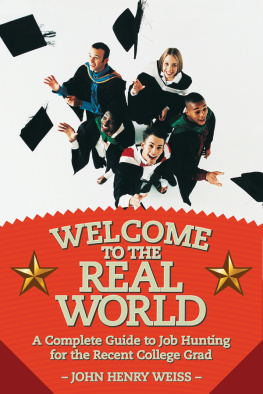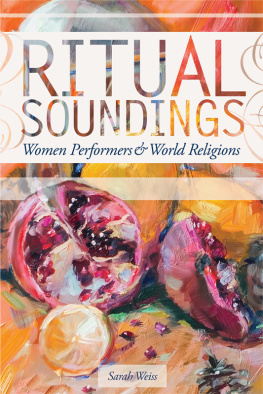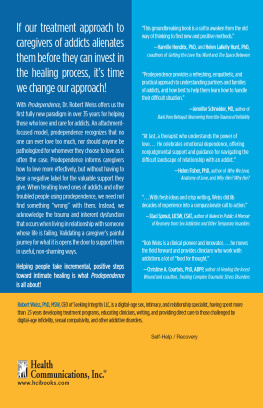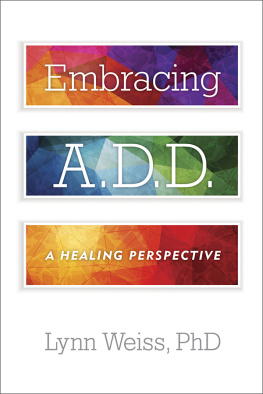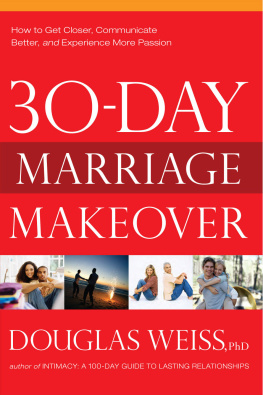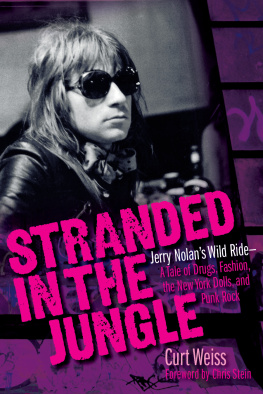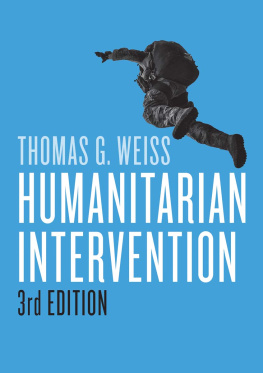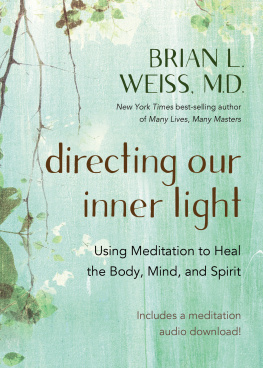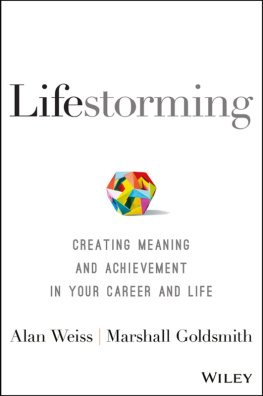Weiss - Would the world be better without the UN?
Here you can read online Weiss - Would the world be better without the UN? full text of the book (entire story) in english for free. Download pdf and epub, get meaning, cover and reviews about this ebook. year: 2018, publisher: Polity Press, genre: Politics. Description of the work, (preface) as well as reviews are available. Best literature library LitArk.com created for fans of good reading and offers a wide selection of genres:
Romance novel
Science fiction
Adventure
Detective
Science
History
Home and family
Prose
Art
Politics
Computer
Non-fiction
Religion
Business
Children
Humor
Choose a favorite category and find really read worthwhile books. Enjoy immersion in the world of imagination, feel the emotions of the characters or learn something new for yourself, make an fascinating discovery.
Would the world be better without the UN?: summary, description and annotation
We offer to read an annotation, description, summary or preface (depends on what the author of the book "Would the world be better without the UN?" wrote himself). If you haven't found the necessary information about the book — write in the comments, we will try to find it.
Would the world be better without the UN? — read online for free the complete book (whole text) full work
Below is the text of the book, divided by pages. System saving the place of the last page read, allows you to conveniently read the book "Would the world be better without the UN?" online for free, without having to search again every time where you left off. Put a bookmark, and you can go to the page where you finished reading at any time.
Font size:
Interval:
Bookmark:

Thomas G. Weiss
polity
Copyright Thomas G. Weiss 2018
The right of Thomas G. Weiss to be identified as Author of this Work has been asserted in accordance with the UK Copyright, Designs and Patents Act 1988.
First published in 2018 by Polity Press
Polity Press
65 Bridge Street
Cambridge CB2 1UR, UK
Polity Press
101 Station Landing, Suite 300
Medford, MA 02155, USA
All rights reserved. Except for the quotation of short passages for the purpose of criticism and review, no part of this publication may be reproduced, stored in a retrieval system or transmitted, in any form or by any means, electronic, mechanical, photocopying, recording or otherwise, without the prior permission of the publisher.
ISBN-13: 978-1-5095-1729-9
A catalogue record for this book is available from the British Library.
Library of Congress Cataloging-in-Publication Data
Names: Weiss, Thomas G. (Thomas George), 1946- author.
Title: Would the world be better without the UN? / Thomas G. Weiss.
Description: Cambridge, UK ; Malden, MA, USA : Polity Press, [2018] | Includes bibliographical references and index.
Identifiers: LCCN 2017019714 (print) | LCCN 2017043448 (ebook) | ISBN 9781509517282 (Mobi) | ISBN 9781509517299 (Epub) | ISBN 9781509517251 | ISBN 9781509517268 (pbk.)
Subjects: LCSH: United Nations. | Security, International--International cooperation. | Peace-building--International cooperation. | Human rights--International cooperation. | Poverty--International cooperation. | Environmental quality--International cooperation.
Classification: LCC JZ4984.5 (ebook) | LCC JZ4984.5 .W4595 2018 (print) | DDC 341.23--dc23
LC record available at https://lccn.loc.gov/2017019714
The publisher has used its best endeavours to ensure that the URLs for external websites referred to in this book are correct and active at the time of going to press. However, the publisher has no responsibility for the websites and can make no guarantee that a site will remain live or that the content is or will remain appropriate.
Every effort has been made to trace all copyright holders, but if any have been inadvertently overlooked the publisher will be pleased to include any necessary credits in any subsequent reprint or edition.
For further information on Polity, visit our website: politybooks.com
Thomas G. Weiss is Presidential Professor of Political Science at The City University of New Yorks Graduate Center and Director Emeritus (200114) of the Ralph Bunche Institute for International Studies who was named 2016 Andrew Carnegie Fellow. Past president of the International Studies Association (200910) and recipient of its IO Distinguished Scholar Award 2016, he also directed the United Nations Intellectual History Project (19992010) and was research professor at SOAS, University of London (201215), chair of the Academic Council on the UN System (20069), editor of Global Governance, research director of the International Commission on Intervention and State Sovereignty, research professor at Brown Universitys Watson Institute for International Studies, executive director of the Academic Council on the UN System and of the International Peace Academy, a member of the UN secretariat, and a consultant to public and private agencies. He has written extensively about multilateral approaches to international peace and security, humanitarian action, and sustainable development. His most recent single-authored volumes include Humanitarianism Intervention: Ideas in Action (2016); Whats Wrong with the United Nations and How to Fix It (2016); Governing the World? Addressing Problems without Passports (2014); Global Governance: Why? What? Whither? (2013); Humanitarian Business (2013); and Thinking about Global Governance: Why People and Ideas Matter (2011).
I begin with my profound gratitude to the Carnegie Corporation of New York, which named me a 2016 Andrew Carnegie Fellow. The generous support provided two years for the kind of research and reflection that I hope is present on every page in this book. Vartan Gregorian was my boss at Brown University and as a consultant to the corporation when he first arrived in New York. But he has become far more than that over the years, inspiring me to push myself and my thoughts about the past, present, and future of multilateralism and the United Nations. Most charitable foundations and governments invest in institutions rather than individuals and in soundbites rather than research. The Carnegie Corporation under his stewardship has gone against that conventional grain, and so other fellows and I have been the beneficiaries. This book would not have appeared as it has, or as quickly, without the foundations generosity of spirit and vision.
The most congenial and productive of my professional homes has, since 1998, been The City University of New Yorks Graduate Center. Former president William Kelly hired me when he was provost and consistently and enthusiastically supported my professional activities as well as tolerated my sense of humor. Current president Chase Robinson has continued to build the distinction of the Graduate Center and nominated me to be a Carnegie Fellow, which has made possible a wonderfully rich last two years.
I have benefited over the years from a number of wonderful intellects and helping hands among my advanced graduate students. This volume reflects research by Paul Celentano, who helped fill in some of the holes that existed after I formulated the book outline. Danielle Zach, as she has over the last decade, abandoned her own work as a post-doc to apply a sharp mind and eye to the raw manuscript, improving substantially its structure and content. This book simply would not have been as timely or persuasive without Pauls and Danielles able helping hands.
This volume marks the culmination of career-long efforts, and I repeat a bit of what I wrote in a 2011 collection of essays. What has united, or perhaps haunted, my work over the years is what many would deem a curious conviction namely, that community interests should hold sway but are invariably shortchanged, nationally or internationally. Long before the America First of Donald Trump in the United States, the countrys welfare had often been sacrificed on the altar of individualism; but globally those of the commons are typically and tragically trampled by great powers as well as by tin-pot dictators and megalomaniacs. Yet, I have remained steadfast in believing that multilateral cooperation is a way not only to attenuate American and big-power arrogance but also to solve many, albeit not all, thorny problems that defy national boundaries.
My analyses of contemporary world politics might very well depress Dr Pangloss, the character in Voltaires Candide who believes that all is for the best in this best of all possible worlds. The gaps are enormous between what happens in the world polis and what is on the books spelled out in the UN Charter and hundreds of international treaties, as well as in public statements by politicians, pundits, prime ministers, princes, and presidents. Surely, ours cannot be the best of all possible worlds. I remain persuaded that good people and good ideas can make a difference to the quality of both human life and international society.
That optimism needs to be asserted amidst the disturbing populist and inward-looking politics in the West and elsewhere that accompanies the most gut-wrenching humanitarian disaster in recent memory. Our collective conscience apparently was beyond shocking, as a halfmillion Syrians died in real time, including children suffocating from chemical weapons. That said, the bottom line for my last lecture would also resemble that from my first: Im an inveterate optimist who believes that it is better sometimes to be wrong, rather than a pessimist and always right.
Font size:
Interval:
Bookmark:
Similar books «Would the world be better without the UN?»
Look at similar books to Would the world be better without the UN?. We have selected literature similar in name and meaning in the hope of providing readers with more options to find new, interesting, not yet read works.
Discussion, reviews of the book Would the world be better without the UN? and just readers' own opinions. Leave your comments, write what you think about the work, its meaning or the main characters. Specify what exactly you liked and what you didn't like, and why you think so.

